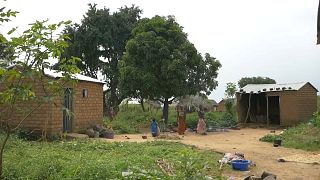Nigeria
The Nigerian government on Wednesday officially listed criminal gangs in the northwest as "terrorist groups", including mass kidnappings.
Heavily armed criminal gangs have been terrorizing people in Nigeria's northwestern and northern states for years, attacking villages, looting them and kidnapping their inhabitants for ransom, and the violence is only getting worse.
The government of President Muhammadu Buhari, which has also been battling jihadist groups in the northeast for a decade, is under pressure to stop the activities of these criminal gangs.
In Wednesday's gazette, the Nigerian federal government referred to the activities of Yan Bindiga and Yan Ta'adda - the Hausa name for "bandits" as they are known locally - as "acts of terrorism".
These activities range from cattle rustling to kidnapping, including of schoolchildren for ransom, to destruction of property.
This qualification implies harsher penalties under the Prevention of Terrorism Act for members of these gangs, their informers and supporters, such as those providing them with fuel and food.
Nigerian newspapers report daily raids by these "bandits" on villages and communities.
Security forces have announced operations against the gangs, including air raids and cutting off mobile networks in parts of northwestern Nigeria, in an attempt to root out the bandits from their dens in the region's forests.
On Tuesday, the police announced that they had freed around 100 abductees in two raids on gang camps in the northwestern state of Zamfara.
In recent years, these criminal gangs have made international headlines with a series of large-scale attacks on schools and universities from which they have abducted dozens of students, some of whom are still being held hostage.
This criminal violence has its roots in conflicts between nomadic pastoralists and sedentary farmers over land and resources such as water. But the cycle of attacks and reprisals has become a criminal phenomenon over the years.













Go to video
At least 26 villagers killed in latest violent attack in central Mali
01:06
Ivory Coast deports 164 Burkinabe refugees amid concerns
11:10
Morocco under Mohammed VI : A model of African progress? [Business Africa]
00:58
UAE lifts 2022 visa ban on Nigerians
00:46
Nigerian court says it will begin hearing Binance tax evasion case in October
02:20
Abuja Dance and arts festival 2024